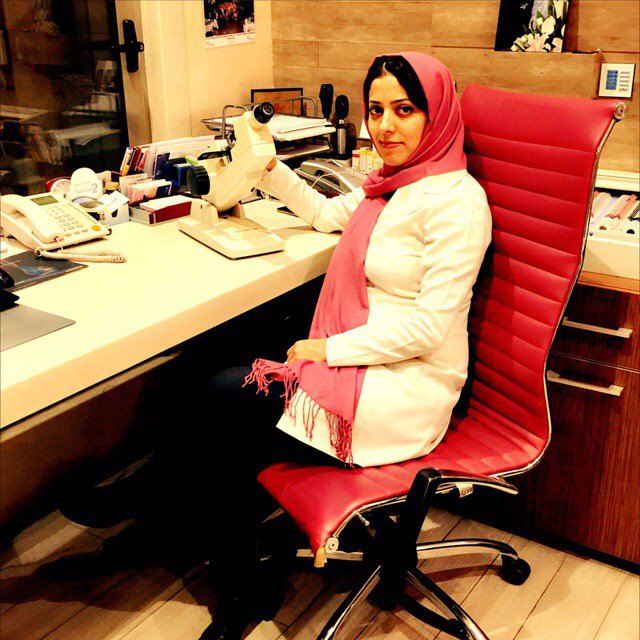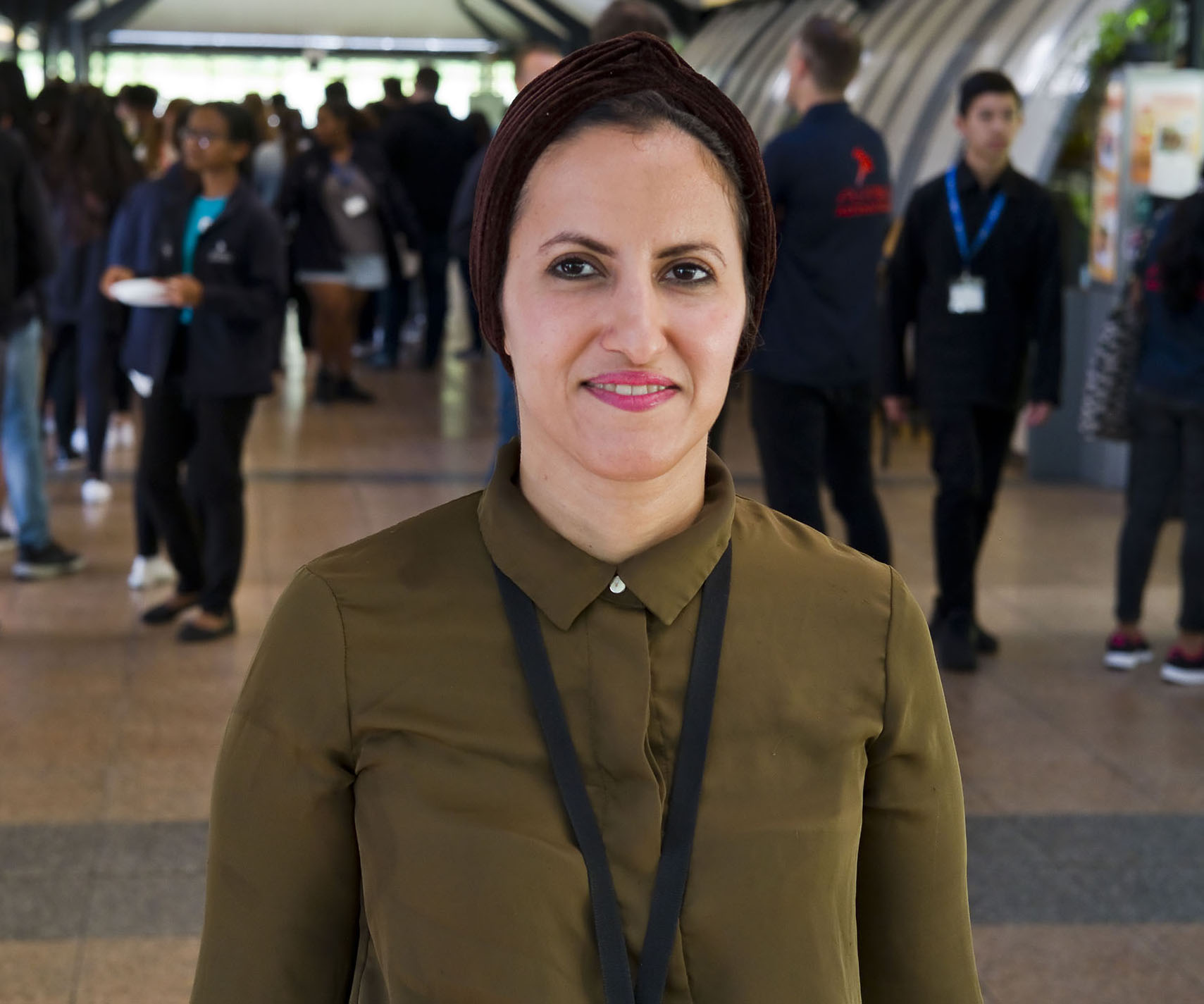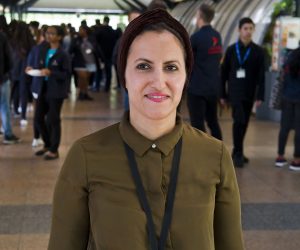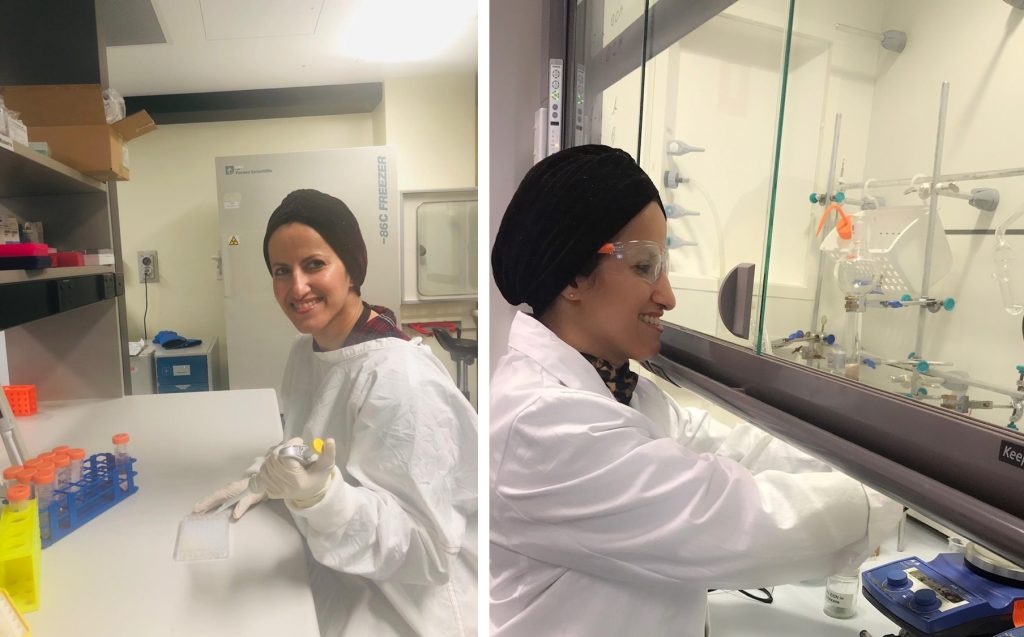By Mahjabeen Khan

Are you brave enough to travel 10,000km away from home to pursue your dream? Zahra Tajbakhsh is! Growing up in Fars province, Iran, Zahra always excelled academically in science subjects, so much that her family nickname was Dr Zahra. Years later, Zahra used her skills to become an optometrist, helping treat people with a range of eye conditions. Curiously however got the better of her and she decided to pursue the dream of becoming Dr Zahra, taking up a PhD in Australia. She now works at the School of Optometry at UNSW, studying how immune cells in the eye cause allergies.
You’re a vision science researcher. What lead you down this path?
During elementary and high school, I was great at science-based subjects like chemistry, biology and maths and thus I knew I wanted a career related to science. My family were very supportive of this and even used to call me ‘Dr Zahra’. However, when I passed the university entrance exam, I didn’t actually know what type of science I wanted to pursue so I selected the optometry simply based on the fact that it received a high credit score and I had one.
After I graduated as an optometrist, I realised how useful I could be for people who were suffering from eye-related diseases. Whenever my patients came back to me and talked about how happy they were with their treatments, I felt so proud and happy. However, I also found myself wanting to go beyond just treating patients and actually increase the knowledge in the field. So, I took a big leap and moved 10,623km away from my family and friends in Iran to do a PhD in Australia. It was a really big decision, but I love learning new things every day and getting closer to actually becoming ‘Dr Zahra’.
What is your PhD project about?
My PhD project focuses on allergies which affect the eye. These are known as ocular allergies. Ocular allergies are a problem because they are increasing in prevalence worldwide and all the current treatments for these allergies only provide sufferers with temporary relief. In my PhD, I am studying the special immune cells responsible for initiating allergies in the eye. If we can understand how these cells cause allergies, then we can hopefully develop better treatments in the future.
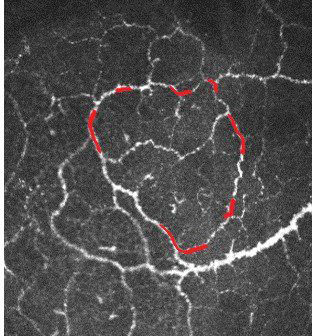
What part of your research do you find most interesting?
I love all the parts of research! I like finding gaps in the current knowledge and designing a research aim. I also like conducting experiments, collecting data and analysing it. I find it interesting and love the feeling that I am adding new information to the scientific world.
What do you get up to when you are not doing research?
I love music and have just started to learn an instrument called the Sitar. It is a traditional Iranian instrument. I also like to read philosophy and poetry books, hang out with friends and watch movies.
What are your plans after you finish your PhD?
I would like to continue to do research, probably with research and development companies. I think the important part of the research is to be able to translate results into products and services which can be used by people.
The UNSW Women’s in Maths and Science program is all about sharing science with the public, particularly the younger generation. What’s your message to the younger generation about science?
I encourage young people to look at science and science related careers and don’t think that they are too hard. Whilst I have definitely found it hard sometimes it’s worth persisting. Like all things in life, no matter how hard it is or how many times you may fail, if you trust yourself and love what you are doing, it will all be worth it.
Follow Zahra on Twitter
Follow Mahjabeen on Twitter

